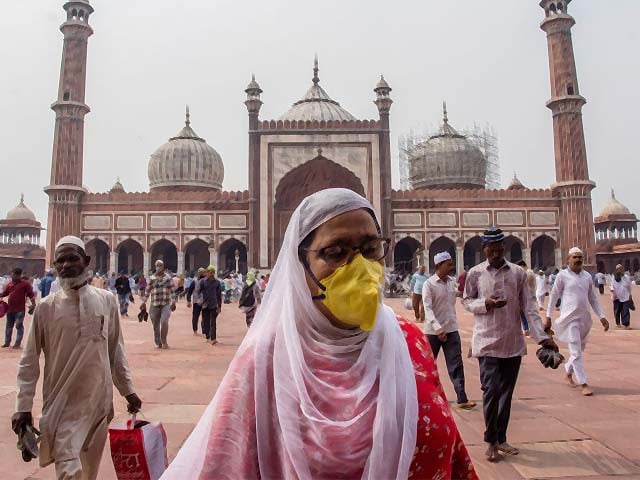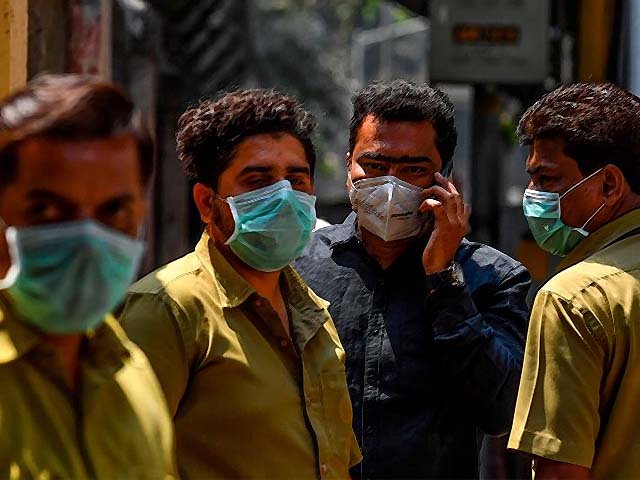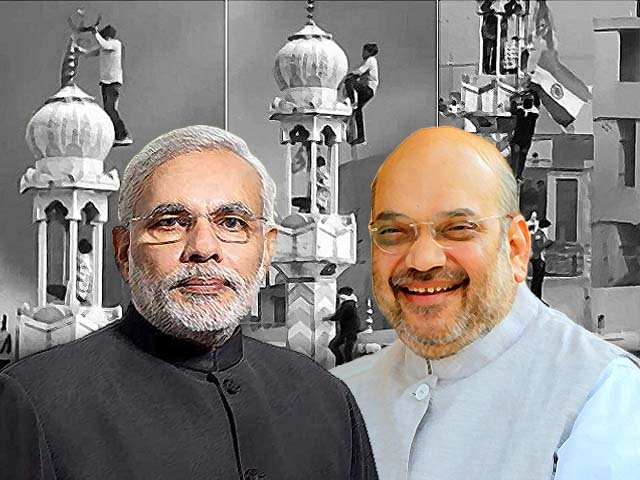
Kashmir- where Indian democracy comes to weep
More than an issue between India and Pakistan, Kashmir is a challenge to India and its idea of democracy.
The title of one of the sessions in the recently held Jaipur Literature Festival was “Prison Diaries”. Moderated by Sidharat Vardarajan, editor of The Hindu, the three authors of on stage were all from Jammu and Kashmir; Iftikhar Gilani, Anjum Zamarud Habib and Sahil Maqbool. Whether it was by choice or coincidence, all the prison diaries that have been produced in India in recent times have been written by Kashmiris.
Iftikhar Gilani, a journalist by profession who is also well-connected with political circles in Delhi, was picked up in 2002 by security agencies from his Delhi residence on charges of espionage.
The allegation was that he was providing information to Pakistan’s Inter-Services Intelligence. He was released only after a gerat media furor but not before spending seven harrowing months in Delhi’s Tihar jail.
He wrote a memoir of his days in incarceration“My Days in Prison”.
Anjum Zamarud Habib, the founding member and patron of Muslim Khawateen of the Hurriyat Conference, was falsely implicated under the Prevention of Terrorism Act (POTA), a draconian law that didn’t have provision for bail. She spent five years behind the bar and her book “Prisoner No 100” is a rare and shocking account of tortured years spent in Tihar jail and a critique of the judicial system.
After over 18 years as a special correspondent and investigative journalist with one of the mainstream newspapers, Sahil Maqbool - the third author - was arrested as a spy and imprisoned. The time he spent in jail came to be published as a “Jail Memoir”, in which he narrates not only his own ordeal but the pains of other prisoners who have fallen prey to the arbitrary application of laws and rules.
So what do these three stories tell us about the relationship between India and the state of Jammu and Kashmir? They tell us how Kashmir has become a prisoner of the Indian establishment’s paranoia.
Not long ago, activist lawyer and leading light of the Anna Hazare Movement, Prashant Bhushan, was thrashed by some extreme right-wing Hindu groups for advocating the cause of the Kashmiri people. The debate that followed largely focused on Bhushan’s so-called transgression rather than the attack on his freedom of expression and violence against him. Even his mentor Anna Hazare didn’t criticise the attackers but repudiated the lawyer for questioning India’s hold over Kashmir. He further added that Kashmir is an integral part of India.
It is this paranoia that has characterised India’s policy towards Kashmir for the last 60 years. The kind of democratic choice and freedom that define other Indian states have been absent from this bordering state. The peoples’ voice has always been perceived as a threat rather than a call to mend ways. By suspecting the intention of our own people, we have been insulting the genuine voices of the masses who want their own democratic rights and freedom of choice.
For other parts of India, democracy has been acting as a catalyst that liberates people from years of political oppression and empowering them to be political stakeholders. But the same democracy becomes a prisoner of tunnel vision in Jammu and Kashmir - we rig our own potent idea in the disputed territory.
In his book “India and Pakistan” Stanley Wolpert writes:
The people of Kashmir themselves must be permitted to choose their own leaders in free and fair elections, as do Indians in every other states in that union, and New Delhi solemnly commit to supporting Kashmir’s provincial autonomy and rights of its people, as it does the autonomy and rights of the people of Punajb,Maharashtra or West Bengal.
But on the contrary, these liberal and democratic values are given a short shrift in the state. And in this crime, the government and the Indian people are complicit. The moral courage and intellectual integrity that is needed to stand up against the brutalities of the forces in the valley is missing. We tend to largely ignore the widespread human rights violation and suppression, and never support their urge for liberation and freedom.
Still, we expect them to stand by us and sing the national anthem at every Independence and Republic Day.
In his book “Until My Freedom has Come”, independent documentary film maker and activist, Sanjay Kak writes:
Today the Kashmir Valley has the highest concentration of soldiers in the world - more than Afghanistan, Iraq or Burma. It is only in the last five years that the shape of this intervention has been dragged out of the guarded penumbra of Indian national interest.
He further writes:
...seventy thousand Kashmiris have been killed since 1989,and 8,000 have gone missing. To this must be added the less visible costs of torture, rape,life long physical incapacities and grievous economic, social, and psychological damage.
Pakistan also cannot absolve itself from bringing trouble and hardship to the Kashmiri people it claims as its own. It cannot escape the blame of radicalising the society and precipitating the crisis by its support to militancy and the destructive elements in the valley. By making Kashmir a prestige issue, Islamabad has forgotten the plight and pain of the people.
Wolpert, an old hand in South Asia and a professor emeritus at the University of California, writes:
(Pakistan’s) failure to sustain a freely elected civil polity and its inability to control the al Qaeda and the Taliban militants who inhabit its entire Afghan frontier, and to end the nurturing of the Pakistani soil of suicide bombers, its demand for a democratic resolution of Kashmir conflict will have little credibility and win scant support.
At the same time the South Asian expert argues that India should stop the military occupation and “praetorian attacks on Kashmir’s Muslim majority”.
More than an issue between India and Pakistan, Kashmir is a challenge to India and its idea of democracy and pluralism.
It is a slap to our claim to be a true democracy.
By not honouring our commitment to our Constitution and its values in the disturbed valley, we are inflicting injustice and injuries to our own idea of India.
Kashmir is the place where Indian democracy comes to weep.

Supporters of Jammu and Kashmir Libration Front (JKLF) shout pro-freedom slogans during a protest. PHOTO: AFP
Read more by Sanjay here.




COMMENTS (90)
Comments are moderated and generally will be posted if they are on-topic and not abusive.
For more information, please see our Comments FAQ